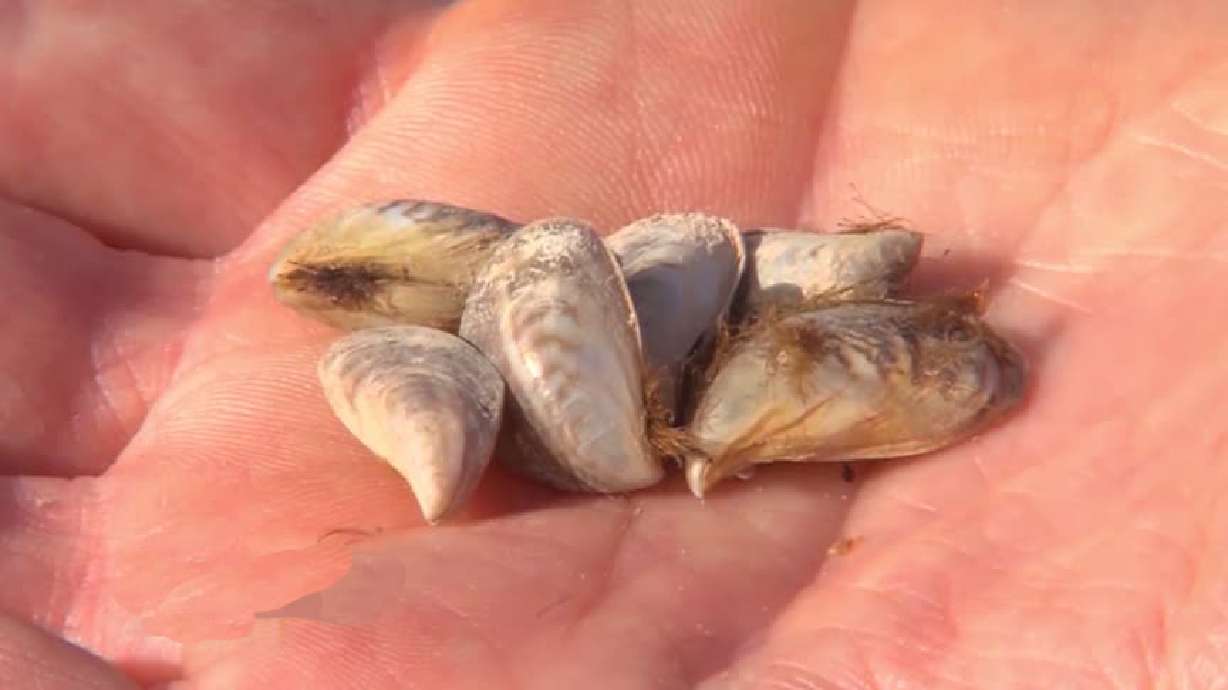Estimated read time: 3-4 minutes
This archived news story is available only for your personal, non-commercial use. Information in the story may be outdated or superseded by additional information. Reading or replaying the story in its archived form does not constitute a republication of the story.
BOISE, Idaho — Utah's northern neighbor is taking on a pesky invasive species that knows no boundaries.
Idaho Gov. Brad Little signed a new funding bill last week that includes $6.6 million for the Idaho State Department of Agriculture to prevent and monitor quagga mussels from impacting the state, after the state was successful in efforts to combat the species in the Snake River last year.
"An unchecked spread of quagga mussels has the potential to cost Idaho hundreds of millions of dollars in direct and indirect costs," Little said, in a statement after signing the bill into law. "(This bill) increases our manpower and resources to keep invasive species out of our precious water."
Quagga mussels are considered problematic because they can clog pipes and damage other infrastructure needed for drinking, energy, agriculture, recreation and more. Both it and zebra mussels can cause upwards of hundreds of millions of dollars in damage, the U.S. Forest Service notes.
During a press conference last week, Little said he had to double-check the numbers when he first heard about the potential costs, because the figure was so staggering.
"The financial risk is obviously enormous," he said.
Idaho officials said the new resources added by the bill will go toward "aggressively" addressing a potential crisis, so the Gem State doesn't "lose control" in the battle over quagga mussels. It tacks onto what the state already had in place with its Invasive Species Act passed in 2008.
The update comes after Idaho officials believe they were able to avoid a scare in the Snake River. The Idaho State Department of Agriculture reported finding juvenile quagga mussels near Twin Falls, which sparked efforts to rid the species last year.
The state's $3-million campaign came to an end with no signs of the species, the Idaho Capital Sun reported in November; however, the outlet noted officials may not fully know if their efforts worked until spring is in full swing.
Of course, quagga mussels can cause all sorts of problems in Utah, too, which shares Bear Lake with Idaho. It's why Utah has cracked down on it so much in recent years.
The threat of quagga mussels is why the Utah Division of Wildlife Resources conducts regular checks of boats entering and exiting big bodies of water, especially since the species typically spreads to different bodies of water after latching onto watercraft. The agency reported inspection of more than 250,000 boats and over 6,500 decontaminations, statewide, in 2023.
Officials reported 455 citations for violations of Utah laws that aim to prevent the spread of invasive mussels. Utah also implemented a new rule that went into effect last summer, requiring all boaters — residents or out-of-state visitors — to complete a "mussel-aware boater course" and pay an automatic identification system vessel enrollment program fee before launching as a part of Utah's efforts to combat the species.
Lake Powell remains the only Utah body of water with quagga mussels at the moment.









